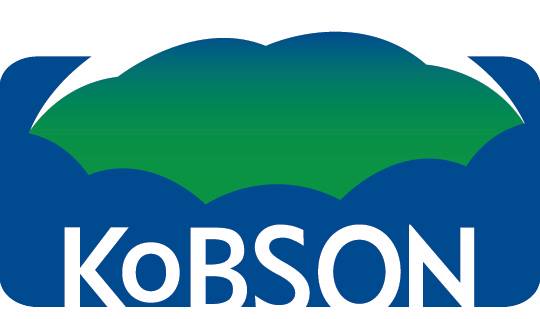DOI: 10.5937/jaes0-27202
This is an open access article distributed under the CC BY 4.0

Volume 18 article 726 pages: 555 - 560
One of the most important strategic objectives is to create a sustainable model for the development of the Kazakhstan
economy, which is closely linked to the solution of energy saving and energy efficiency in the construction industry.
The main principles of the energy efficiency strategy include integrated approach (efficient use of energy at all
stages of the facility's life cycle for all types of energy resources, with legal support and organizational and technical
control by the state) and systematic approach (the study of the process using general rather than partial approach).
The article analyzes key problems and barriers that prevent the successful implementation of energy saving and energy
efficiency policies. A significant role in the rational use of energy resources belongs to the regulatory framework.
It was revealed that currently existing regulatory and technical documents in the country, unlike similar documents
in EU countries, have a number of inaccuracies and disadvantages that do not allow for a full accounting of energy
consumption. At present, there is practically no effective methodology for determining the energy efficiency of residential
buildings and structures in Kazakhstan. In this regard, a methodology for determining the energy efficiency
of buildings and structures, harmonized with EU requirements (taking into account energy consumption for heating,
ventilation, high-temperature water supply, cooling and lighting) is currently being developed. The energy efficiency
improvement of new, renovated and operated buildings will make it possible to reduce greenhouse gas emissions,
thus contributing to solving both global environmental problems and energy and environmental security in the Republic
of Kazakhstan.
1. Van Chien, N. (2020). Energy Consumption, Income, Trading Openness, and Environmental Pollution: Testing Environmental Kuznets Curve Hypothesis. Journal of Southwest Jiaotong University, 55(1). https://doi.org/10.35741/issn.0258-2724.55.1.49
2. KAZENERGY Association. (2014). Review of the state policy of the Republic of Kazakhstan in energy saving and energy efficiency. Brussels.
3. United Nations Development Programme in Kazakhstan. Global Environment Facility. (2015). Why is it profitable to construct energy-efficient buildings? Astana.
4. Law of the Republic of Kazakhstan No. 541-IV "On Energy Saving and Energy Efficiency Improvement" (2012). Office of the President of the Republic of Kazakhstan. https://policy.asiapacifi cenergy.org/ node/135
5. Sharipov, R. Zh., & Sabitbek, I. R. (2018). Implementation of the development program of standard technical documents of the Republic of Kazakhstan on the assessment of energy efficiency of buildings. Vestnik of JSC "KazNIISA", 4(80).
6. Sharipov, R. Zh., & Alimova, K. K. (2019). Topical issues of energy saving and energy efficiency. Vestnik of KazNRTU, 1(131), 148–152.
7. Kyoto Protocol of the United Nations Framework Convention on Climate Change. (1997). Kyoto. https://www.eea.europa.eu/policy-documents/kyotoprotocol- to-the-un
8. Directive 2010/31/EU of the European Parliament and Council on the energy performance of buildings. (2010). https://eur-lex.europa.eu/legal-content/EN/ TXT/?uri=CELEX%3A32010L0031
9. Sharipov, R. Z. (2018). Barriers to the implementation of energy-saving and energy efficiency measures in the construction sector of the Republic of Kazakhstan. Proceedings of the IV International Scientific and Practical Conference "Technical Regulation of the Construction Industry in Modern Conditions".
10. Kudrevich, O. O. (2014). Energy Efficiency Certification of Buildings. Minsk.
11. Lari, A. (2015). Energy efficiency certification of buildings. Best practices for energy performance certification of high-rise apartment buildings. Minsk.
12. Gorshkov, A. S., Vatin, N. I., Rymkevich, P. P., & Kydrevich, O. O. (2018). Payback period of investments in energy saving. Magazine of Civil Engineering, 78(2), 65–75. doi: 10.18720/MCE.78.5
13. Sharipov, R. Zh. (2019). Issues of energy-effi cient construction in the Republic of Kazakhstan. Proceedings of the V International Scientific and Practical Conference "Technical Regulation of the Construction Industry in Modern Conditions", 14–17.
14. Sharipov, R. Zh., Yerzhanov, S. E., & Sabitbek, I. R. (2019). Issues of developing the methodology for the determination of energy efficiency of buildings and structures in the Republic of Kazakhstan. Moscow: The Bulletin of the Construction Technology, 8 (1020), 59–61.
15. Tarnagursky, A. V. (2016). Justifi cation, recommendations and draft regulations for the step-by-step implementation of the energy efficiency certification system for buildings. Minsk.
16. Semin, A. N., Ponkratov, V. V., Levchenko, K. G., Pozdnyaev, A. S., Kuznetsov, N. V., & Lenkova, O. V. (2019). Optimization model for the Russian electric power generation structure to reduce energy intensity of the economy. International Journal of Energy Economics and Policy, 9(3), 379–387. https://doi. org/10.32479/ijeep.7552
17. Li, C., Pu, Y., & Zhang, J. (2017). Optimization of Energy Efficiency of Train Travelling Along Slope Using Sequential Quadratic Programming. Journal of Southwest Jiaotong University, 52(5). http://jsju.org/ index.php/journal/article/view/53
18. Kuznetsova, E. L., & Makarenko, A. V. (2019). Mathematical model of energy efficiency of mechatronic modules and power sources for prospective mobile objects. Periodico Tche Quimica, 16(32), 529–541.







